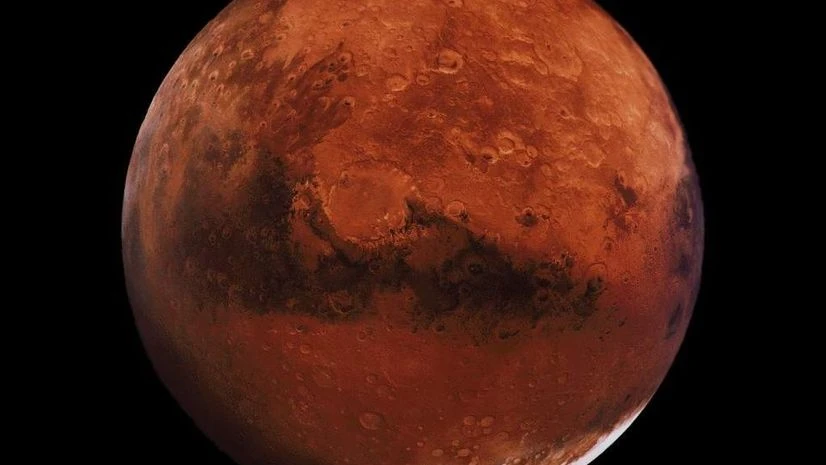Here are 10 things you should know before you decide to travel to Mars.
1) Where is Mars?
Mars is the fourth planet from the Sun and the second smallest planet in the Solar System. Mars orbits the sun at an average distance of 141 million miles, taking 686.93 Earth days or 1.8807 Earth years to complete a revolution.
2) How much do we know about living conditions on Mars.Is it similar to life on Earth?
Well, not really. Despite costly expeditions being planned, we do not know everything conclusively about life on Mars. The surface of Mars is said to be the closest to Earth as compared to other planets but yet, its going to be a very harsh place to live. Temperature on the planet varies between -225 and +60 degrees Fahrenheit, with an average of -67 degrees. Mars also has the largest dust storms in the Solar System. These can vary from a storm over a small area, to gigantic storms that cover the entire planet.
3) Is there existing life on Mars?
No conclusive proof of life on Mars is yet to be found and the scientific world is clearly divided on the issue. Most scientists believe it is in the form of microorganisms, though the discovery of the harsh conditions on the surface of Mars seems to make the existence of life highly unlikely. At a European Space Agency conference in 2005, 75 % of scientists said they believed that life once existed on Mars, while 25 % said they believe life currently exists there. According to a Discovery channel feature, A group of scientists in Indiana are growing small plants in Mars-like soil, in a Martian Environment Simulator, to determine whether it would be possible for astronauts exploring Mars to grow greenhouse plants on the Red Planet as a food source.
4) What are the possible health hazards of living on Mars?
Like other space travels, zero gravity poses the biggest risk for human beings. Experts feel artificial gravity will be necessary for the crew whenever possible during the Mars mission. The health hazards are both physical as well as pscyhological. Improper blood circulation, space sickness, weak immune system, back aches, muscle loss and radiation are some of the physical problems one will face. Pscyhological problems range from depression, interpersonal conflicts, anxiety, insomnia and even psychosis.
5) Is water available on Mars?
While scientists have concluded that Mars, like Earth, was once a watery planet, there is little evidence to support the existence of liquid water today. It is now a frozen, dry planet. Having developed a thin atmosphere, Mars never has rain—water vapour in the air evaporates or becomes unstable. With a reduced ability for greenhouse gases to trap solar heat in a thin atmosphere, Mars is now too cold for abundant liquid water on its surface.
6) What is the Mars One project & how long will it take to travel to Mars?
Dutch-based Mars One project is a ‘not for profit foundation that will establish a permanent human settlement on Mars in 2023′, aiming to add more crew to the human colony every two years subsequent. This year 40 people will be chosen for the project and four of these (two men and two women) is likely to be sent to send to Mars in September 2022, to land in April 2023. This means a journey of nearly 8 months to cover a distance of 56 mn kms.
7) Can you come back if you miss life on Earth?
Well, forget it. Mars One project is combing applications of thousands who are willing to dedicate their lives to the one-way mission. There is no coming back if you get homesick.
8) How dangerous is the mission to travel to Mars?
In spite of the risks of space travel, the Mars One founder said he is convinced of the viability of the project. However, some space travel experts have said the risks are far too high to carry out these manned missions to Mars, a distance that humans have never traveled.
Radiation is a big concern. NASA does not allow their astronauts to expose themselves to radiation levels that could increase their risk of developing cancer by more than 3%.
9) How much does it cost to apply to move to Mars?
Anyone over 18 can apply with a fee to submit an application. For the 30,000 Americans that have done so it’s a $38 payment, while for those who reside in Madagascar or Afghanistan it’s just $5.
The varying amounts, the foundation says, take into consideration a country’s GDP, ensuring that access to the selection programme reaches as wide an audience as possible. As per the company the cost of travel has been kept low because they want the funds to be collected by the sponsors and media that will take away its broadcasting rights and movies that will document almost everything from the astronauts. their training on earth and about the deployment and colonisation of Mars
10) Who else is getting ready to send humans to Mars?
Mars One isn't the only group hoping to make history by sending people to the red planet. The Inspiration Mars Foundation wants to launch two people -- a man and a woman -- on a 501-day, round-trip journey to Mars and back in 2018 without ever touching down.

)
